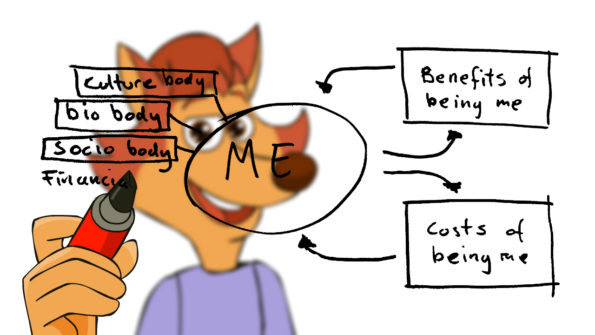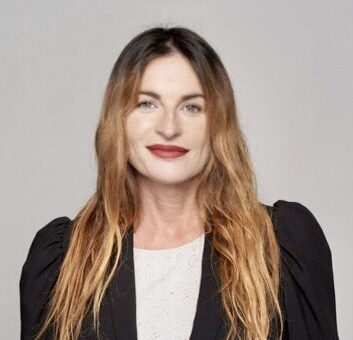Search
To search for an exact match, type the word or phrase you want in quotation marks.
A*DESK has been offering since 2002 contents about criticism and contemporary art. A*DESK has become consolidated thanks to all those who have believed in the project, all those who have followed us, debating, participating and collaborating. Many people have collaborated with A*DESK, and continue to do so. Their efforts, knowledge and belief in the project are what make it grow internationally. At A*DESK we have also generated work for over one hundred professionals in culture, from small collaborations with reviews and classes, to more prolonged and intense collaborations.
At A*DESK we believe in the need for free and universal access to culture and knowledge. We want to carry on being independent, remaining open to more ideas and opinions. If you believe in A*DESK, we need your backing to be able to continue. You can now participate in the project by supporting it. You can choose how much you want to contribute to the project.
You can decide how much you want to bring to the project.

Driven by the counter-cultural fever on the 1960s and 1970s, alternative and new-age spiritualisms have served as a substitute for agnostics during decades. This hippie self-care, commoditized and very disseminated today, is recognizable by its blend of signifiers: a mixture of “not always well used” references from Eastern cultures, pseudo-scientific diets, and experiential paths. Today, artists approach self-care tendencies to criticize society’s failings and to imagine a positive way forward. As a reflection on consumerism, food trends and alternative spiritualism, these artistic practices are often defined by the social and communal experience of self-organization.
The body of work of London based artist Ed Fornieles (1983, Petersfield, UK) is informed by social media, data analysis and the interpersonal relations arising from the digital environment. Narratives, habits, and technology in the formation of social roles and personal identity are transposed into scripts and improvised performances as Facebook sitcom Dorm Daze, New York New York Happy Happy (NY NY HP HP) or The Work Place. But not only, in Der Geist: Flesh Feast, the artist, chronicles his experience following a corporate-zen style “self-management diet” documenting it through different formats —sculptures, cartoons or film— while the real site of intervention was his body. Fornieles asks if it is possible to repurpose performance enhancing diets, apparently aligned to productivity and neo-liberal expectations, toward a more holistic remodelling of the individual and societies, while acknowledging the anxieties, dependencies, and politics inherent to them.

I believe your body of work in general —probably long shot— is related to find a way to deal with community groups defining its self-identity, its construction and interpretation. As mysticism may also refer to the accomplishment of insight in hidden truths, and to human transformation supported by various practices and experiences; do you think these late capitalist new-age self-care tendencies, the online life or the technology-driven societies are related to new contemporary mysticism?
Actually, the alternative lifestyle became the norm, and I am quite interested in how this sort of lifestyle groups try to create different options from the mainstream but also how often they end up replicating big power structures. At the moment I am looking at countercultural movements and using role play to create a distinct group. My next project called The Group uses improvisation to create a very distinct culture, a way of being, a dietary lifestyle, a series of beliefs and a set of symbols and rituals.
Also, your work Der Geist: Flesh Feast is about self-management, biohacking in what way diets function as instruments of ideology, could you please elaborate on this?
That work comes out of me embodying or experimenting a lot of these diets for a period. All of these new-age lifestyles and diets are born out of a system taking an approach to the individual and the body. I am interested in the creation and control of identity and its political ramifications. Dieting seems to be the pinnacle of self-management. It is a process in which the body and the mind became something to be engineered towards specific goals. That often has to do with a literal diet, what you eat and how do you spend your time, usually is meditation or exercises, which in themselves, are trying to draw individual attention back on themselves, to pay attention to their body, what are they feeling, what they are thinking.
Obviously, there are also hidden dangers and anxieties on these practices. You might have a set of expectations nearly impossible to achieve; that failure is often a source of anxiety. There is also something machine-like about people who do manage to achieve this optimum goal. If you become an ultimate efficient being at some point, you begin to lose your humanity, or you become robotic. I believe that is part of a much more significant trend where the individual becomes removed from their naturalized narrative. The gurus behind these diets seem almost non-human.
Are diets related to gender? In your work, you talk specifically about diets created for men, but historically, due to heteropatriarchal society, women had always pressure to fit in the canon imposed by men —the external appearance—, what is your view?
It is interesting to think in terms of the history of diets. Seventy or eighty years ago a diet was grounded in a community. It was geographically based and often it had to do with conformity and therefore somehow had social values. After the war, diets focusing on weight loss appeared, and they are definitely targeted to a female audience. There is a new range of diets directed to men, and the ones I specifically studied are born in San Francisco where there are a lot of programmers looking at these things. There you can see, how are they selling the diets, what are their goals. In this case, it is to increase the brain function, but also it is about becoming more muscular, it is about body image, and whether it is not replicating patriarchal forms of a traditional weight loss diet, these neuron-expanding ones do have embedded in themselves patriarchal concepts for sure.
To care for the self, with a community in mind, is a balance between individual and collective interests. What is your opinion about individualism, being mentally positive and stay on track in society, as an artist and as an individual member of it?
That is the promise often these diets, and lifestyle choices assure. You can somehow take control of your destiny; maybe some people manage to make that work, I never personally did. I feel like I am continually failing, which I see as an unconscious by-product of these methods. Anyway yes, that definitively create an individualistic way of seeing the world, it makes you focus on yourself as we discussed before. Maybe some diets in Northern Europe are much more communal or social, everyone has the same cultural relationship to food, and that is a unifying factor. It is fascinating because all these people are very individualistic while doing it on mass, as one will meet people who have not same but similar diets, but they have the same ethos, definitively that is also a way of unifying groups.
Leaving food apart, do you think that individualism and success are connected, I mean people finding new ways of being individually successful? Your works, for example, Facebook sitcom Dorm Daze and Maybe New Friends, a performance by Twitterbots, are somehow based in a dystopian vision of individualism, informing the drama and objects of everyday life, selfishness and fake success through social media…
Concerning success, you have to define the parameters of what is it being successful. Definitively, in my opinion, there is a high individualistic approach within these lifestyle groups. It is interesting to analyse societal groups, one of the significant shifts in society is caused by the dissolution of the family, which is being happened for decades now. For example, the TV program Friends was meant to be about a group of individuals who come to the big city and redefined their primarily unit through a group of friends. They aligned themselves together because of their shared views, values, and interests. All this is interrelated, and the sense of individualism presupposes that we can fill these new forms of social units. I do not know how effective that it is; neither if it tends to return to family eventually.
In your works, there are role play, games, simulated dimensions, apocalyptic scenarios, a vulpine cartoon avatar… I have heard about manipulation on individuality — or identity if you want — and therefore subjectivity in your performative projects, what is your view on that?
Ideally, my work has two levels, one is revealing some of the mechanisms on how structures underline many of the environments we live in, and you can do that by performing them differently. For instance, in role play, a participant will play a character, and in some way, they can start seeing themselves as performers. We talk about certain attitudes, they are not necessarily an integral part of what it is to be you, and I am interested in exposing what happens there. This can be applied to analyse how platforms like Facebook and Twitter shape people’s actions and by performing on them you begin to learn them. Another thing is that through role play you might be able to reinvent your own behaviour or the institutions you find yourselves in. Playing differently things become mineable and changeable. Hence, my performative actions can do both things, reveal and reprogram. My work is based on processes that involve failing and experiment. I feel that a work is successful when I end up creating a feedback loop between an immersive experience for something taking part that examines where there is another space for people to reflect on what has happened to them, and how they can try to reconstruct or deconstruct that. I think this happens a lot in live performances like Animal House, Dorm Daze, Ny Ny Hp Hp, Dreamy Awards and hopefully in a new one called The Group that I happen to be putting together now.
Currently, the world seems out of control and opaque politically speaking —with the rise of totalitarianism, populism, etc. To finish, as a young artist with substantial political involvement, do you believe you can infuse a change or at least influence your friends and generation —as Foucault said, society is built from our day to day relations in our close environment, neighbours, friends…?
It is crucial for artists to see themselves as embedded in power structures like everybody else. To me the gallery space is a testing ground, where things can be simulated, tested and potentially seeded in the world at large, it is a social lab. What it is more exciting about art now is that more and more disciplines, from politics to social sciences are finding easy to have a discourse within the art space. I am being more interested in how can I achieve that leading which rarely requires a conversation that primarily has to do with, on one level, the attached romantic discourse and in another, generating assets for wealthy people trade. I do not think it has to be necessarily just those two things or limited in that way. In any case, it’s a crazy world out there!

María Muñoz-Martínez is a cultural worker and educator trained in Art History and Telecommunications Engineering, this hybridity is part of her nature. She has taught “Art History of the first half of the 20th century” at ESDI and currently teaches the subject “Art in the global context” in the Master of Cultural Management IL3 at the University of Barcelona. In addition, while living between Berlin and Barcelona, she is a regular contributor to different media, writing about art and culture and emphasising the confluence between art, society/politics and technology. She is passionate about the moving image, electronically generated music and digital media.
Portrait: Sebastian Busse
"A desk is a dangerous place from which to watch the world" (John Le Carré)